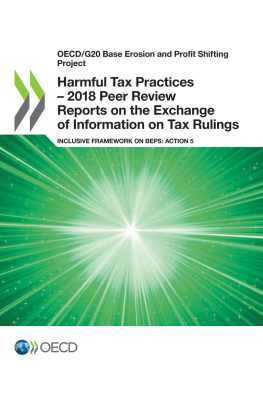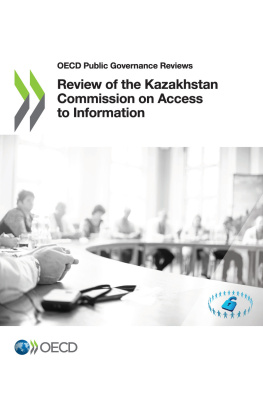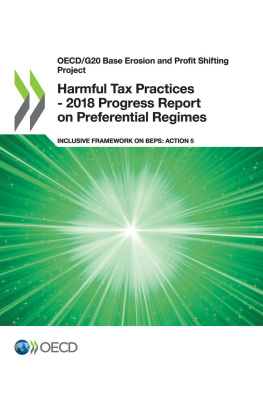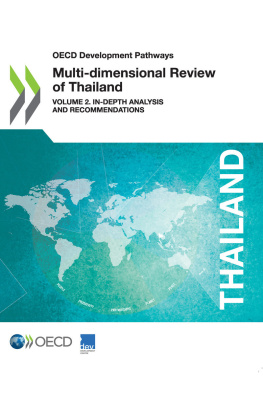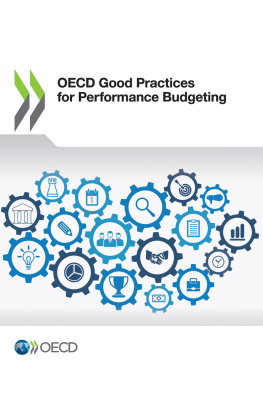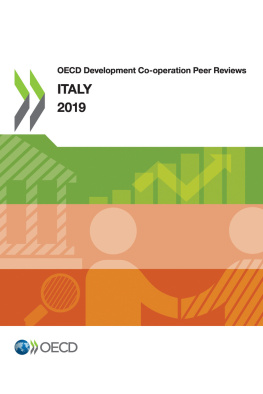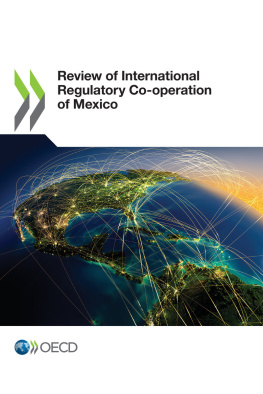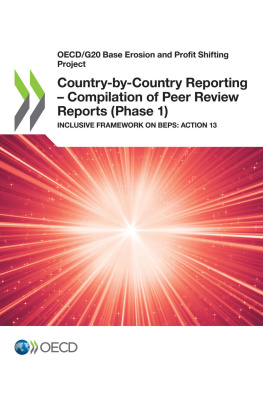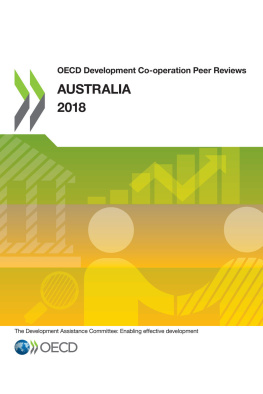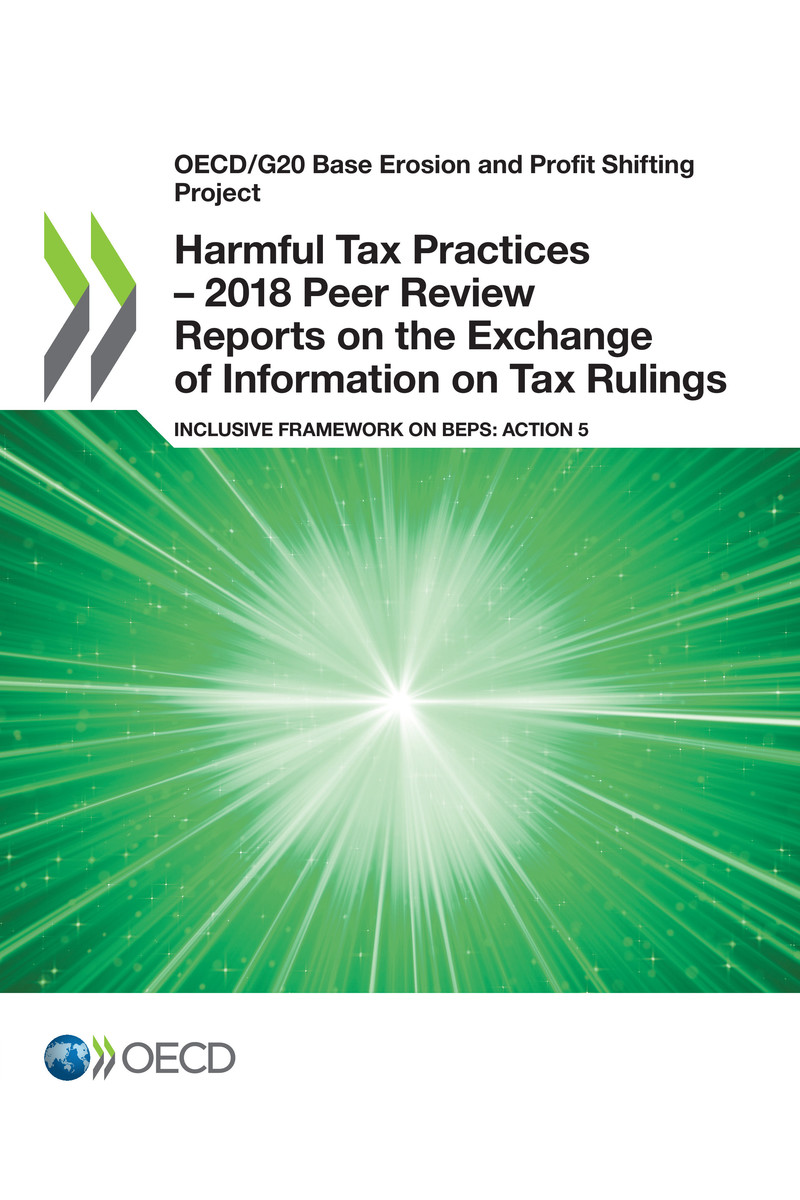OECD/G20 Base Erosion and Profit Shifting Project
Harmful Tax Practices 2018 Peer Review Reports on the Exchange of Information on Tax Rulings Inclusive Framework on BEPS: Action 5
Please cite this publication as:
OECD (2019), Harmful Tax Practices 2018 Peer Review Reports on the Exchange of Information on Tax Rulings: Inclusive Framework on BEPS: Action 5 , OECD/G20 Base Erosion and Profit Shifting Project, OECD Publishing, Paris, https://doi.org/10.1787/7cc5b1a2-en .
Metadata, Legal and Rights
ISBN: 978-92-64-52945-8 (print) - 978-92-64-39513-8 (pdf) - 978-92-64-32181-6 (HTML) - 978-92-64-56036-9 (epub)
DOI: https://doi.org/10.1787/7cc5b1a2-en
OECD/G20 Base Erosion and Profit Shifting Project
ISSN: 2313-2604 (print) - 2313-2612 (online)
This document, as well as any data and map included herein, are without prejudice to the status of or sovereignty over any territory, to the delimitation of international frontiers and boundaries and to the name of any territory, city or area.
The statistical data for Israel are supplied by and under the responsibility of the relevant Israeli authorities. The use of such data by the OECD is without prejudice to the status of the Golan Heights, East Jerusalem and Israeli settlements in the West Bank under the terms of international law.
Note by Turkey
The information in this document with reference to Cyprus relates to the southern part of the Island. There is no single authority representing both Turkish and Greek Cypriot people on the Island. Turkey recognises the Turkish Republic of Northern Cyprus (TRNC). Until a lasting and equitable solution is found within the context of the United Nations, Turkey shall preserve its position concerning the Cyprus issue.
Note by all the European Union Member States of the OECD and the European Union
The Republic of Cyprus is recognised by all members of the United Nations with the exception of Turkey. The information in this document relates to the area under the effective control of the Government of the Republic of Cyprus.
Photo credits: Cover ninog-Fotolia.com.
Corrigenda to publications may be found on line at: www.oecd.org/about/publishing/corrigenda.htm .
OECD 2019
The use of this work, whether digital or print, is governed by the Terms and Conditions to be found at http://www.oecd.org/termsandconditions .
Foreword
The integration of national economies and markets has increased substantially in recent years, putting a strain on the international tax rules, which were designed more than a century ago. Weaknesses in the current rules create opportunities for base erosion and profit shifting (BEPS), requiring bold moves by policy makers to restore confidence in the system and ensure that profits are taxed where economic activities take place and value is created.
Following the release of the report Addressing Base Erosion and Profit Shifting in February 2013, OECD and G20 countries adopted a 15-point Action Plan to address BEPS in September 2013. The Action Plan identified 15 actions along three key pillars: introducing coherence in the domestic rules that affect cross-border activities, reinforcing substance requirements in the existing international standards, and improving transparency as well as certainty.
After two years of work, measures in response to the 15 actions were delivered to G20 Leaders in Antalya in November 2015. All the different outputs, including those delivered in an interim form in 2014, were consolidated into a comprehensive package. The BEPS package of measures represents the first substantial renovation of the international tax rules in almost a century. Once the new measures become applicable, it is expected that profits will be reported where the economic activities that generate them are carried out and where value is created. BEPS planning strategies that rely on outdated rules or on poorly co-ordinated domestic measures will be rendered ineffective.
Implementation is now the focus of this work. The BEPS package is designed to be implemented via changes in domestic law and practices, and in tax treaties. With the negotiation of a multilateral instrument (MLI) having been finalised in 2016 to facilitate the implementation of the treaty related BEPS measures, over 90 jurisdictions are covered by the MLI. The entry into force of the MLI on 1 July 2018 paves the way for swift implementation of the treaty related measures. OECD and G20 countries also agreed to continue to work together to ensure a consistent and co-ordinated implementation of the BEPS recommendations and to make the project more inclusive. Globalisation requires that global solutions and a global dialogue be established which go beyond OECD and G20 countries.
A better understanding of how the BEPS recommendations are implemented in practice could reduce misunderstandings and disputes between governments. Greater focus on implementation and tax administration should therefore be mutually beneficial to governments and business. Proposed improvements to data and analysis will help support ongoing evaluation of the quantitative impact of BEPS, as well as evaluating the impact of the countermeasures developed under the BEPS Project.
As a result, the OECD established the OECD/G20 Inclusive Framework on BEPS (Inclusive Framework), bringing all interested and committed countries and jurisdictions on an equal footing in the Committee on Fiscal Affairs and all its subsidiary bodies. The Inclusive Framework, which already has more than 135 members, is monitoring and peer reviewing the implementation of the minimum standards as well as completing the work on standard setting to address BEPS issues. In addition to BEPS members, other international organisations and regional tax bodies are involved in the work of the Inclusive Framework, which also consults business and the civil society on its different work streams.
This report was approved by the Inclusive Framework on 11 December 2019 and prepared for publication by the OECD Secretariat.
Abbreviations and acronyms
APA
Advance pricing arrangement
ATO
Australian Taxation Office
BEPS
Base Erosion and Profit Shifting
BRA
Barbados Revenue Authority
DFI
International Tax Department (Uruguay)
DGI
Large Taxpayer Division within the Tax Administration (Uruguay)
EOI
Exchange of Information
FHTP
Forum on Harmful Tax Practices
FIOT
Fiscal Intelligence and Fraud Team
HMRC
Her Majestys Revenue and Customs
IFSC
International financial services company
IRBM
Inland Revenue Board Malaysia
ITO
International Tax Office (Kenya)
LIAATM
Law on International Administrative Assistance in Tax Matters
MHQ

